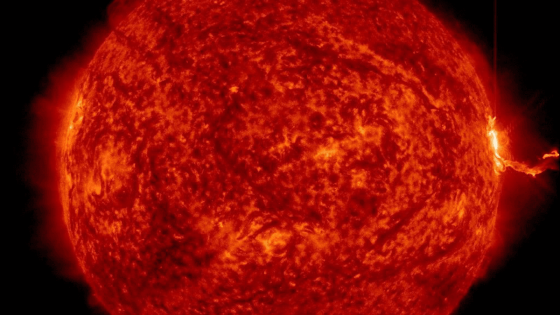The strongest solar flare of 2025 so far has erupted from the Sun, causing significant radio blackouts across Southeast Asia, Europe, and the Middle East. This powerful X2.7 flare, released on 2025-05-15 08:04:00, is a reminder of the Sun’s unpredictable nature as we approach the peak of the Solar Cycle.
- Strongest solar flare of 2025 reported.
- X2.7 flare caused radio blackouts.
- Sunspot region 4087 remains active.
- Flares classified by energy output levels.
- CMEs can take days to reach Earth.
- Potential for future solar activity increases.
Sunspot region 4087 has been particularly active, previously unleashing an X1.2 flare that caused disruptions in the Americas. As solar activity continues, scientists are closely monitoring potential impacts on Earth and the surrounding space environment.
This recent solar event raises important questions about our preparedness for such phenomena. How can we mitigate the effects of solar flares on technology? Understanding these flares is crucial for protecting satellites and communication systems.
- X-class flares can significantly disrupt radio communications.
- Flares travel at the speed of light, impacting Earth almost instantly.
- Sunspot region 4087 may produce more flares in the coming days.
As solar activity continues to evolve, scientists urge ongoing research into solar phenomena to better predict and mitigate their impacts on Earth and our technology.

































